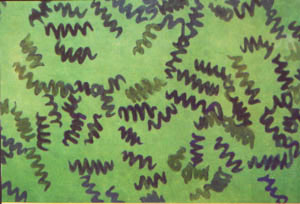Spirulina is a microscopic blue-green alga, used all over the world as a popular natural food supplement. It flourishes in warm climates and alkaline water lakes, most notably in Chad, China, East Africa and South America.

Discovery and development
Although Spirulina has a long history – algae were the first life form to exist on the earth 3.5 billion years ago and it was first discovered in Chad in the 9th Century – it only became commercially available at the beginning of the 1970s. It is currently growing in popularity in the West despite having been used for decades elsewhere in the world.
Spirulina in space
The benefits of Spirulina have now been recognised by NASA (National Aeronautics and Space Administration) and the European Space Agency; they have both selected it as one of the primary foods to be cultivated during long-term space missions.
Why use Spirulina?
Do you feel like your fuel tank is running on empty, that your energy reserves are always surprisingly low? Spirulina can help give you an energy boost. Do you eat your five a day? We all know that fruit and vegetables help maintain a healthier lifestyle, but the British Nutrition Foundation’s 2004 National Diet and Nutrition Survey showed that only 13% of men and 15% of women regularly eat the recommended five portions of fruit and vegetables each day. In fact, on average, most people eat less than three per day. Spirulina is the ideal supplement if you struggle to get enough fruit and vegetables into your daily diet.
Nutrients and benefits
Considered to be the most concentrated plant food in existence, Spirulina is a natural whole food that can help maintain a balanced diet, especially for people who do not eat enough fruit and vegetables, perhaps due to their hectic lifestyle. There is no fruit, vegetable or meat that can provide a complete protein to meet the nutritional needs of the human body, but Spirulina is 60-70% complete protein that is 95% digestible. Unlike most other algae, its unique soft cell wall is made of complex sugars and protein, which makes its many rich nutrients highly digestible to the body.
A whole plant source of gamma linolenic acid (GLA), beta-carotene and chlorophyll, it contains all the essential amino acids, including essential fatty acids.
The following are some of the nutritional benefits of Spirulina
| Chlorophyll | This gives Spirulina its green colour. Chlorophyll is only one molecule different from haemoglobin in human blood and is thought to help detoxify our bodies |
| Beta carotene | It is pure vitamin A. This antioxidant aids vision in dim light |
| GLA | Gamma linolenic acid is an Omega-6 essential fatty acid. It is believed to have anti-inflammatory properties and may help to relieve pain |
| Iron | Helps carry oxygen throughout the body and is essential for healthy blood cells and keeps muscle healthy |
| Zinc | Helps produce new cells and enzymes and promotes the healing of wounds |
| Potassium | Helps maintain a healthy heart, lowers blood pressure |
| Magnesium | Helps turn the food we eat into energy, lowers blood pressure, keeps bones healthy and helps prevent osteoporosis |
| Calcium | Essential for strong bones and teeth, regulates muscle contraction |
| Vitamin E | Helps to maintain healthy skin and protects cell membranes |
